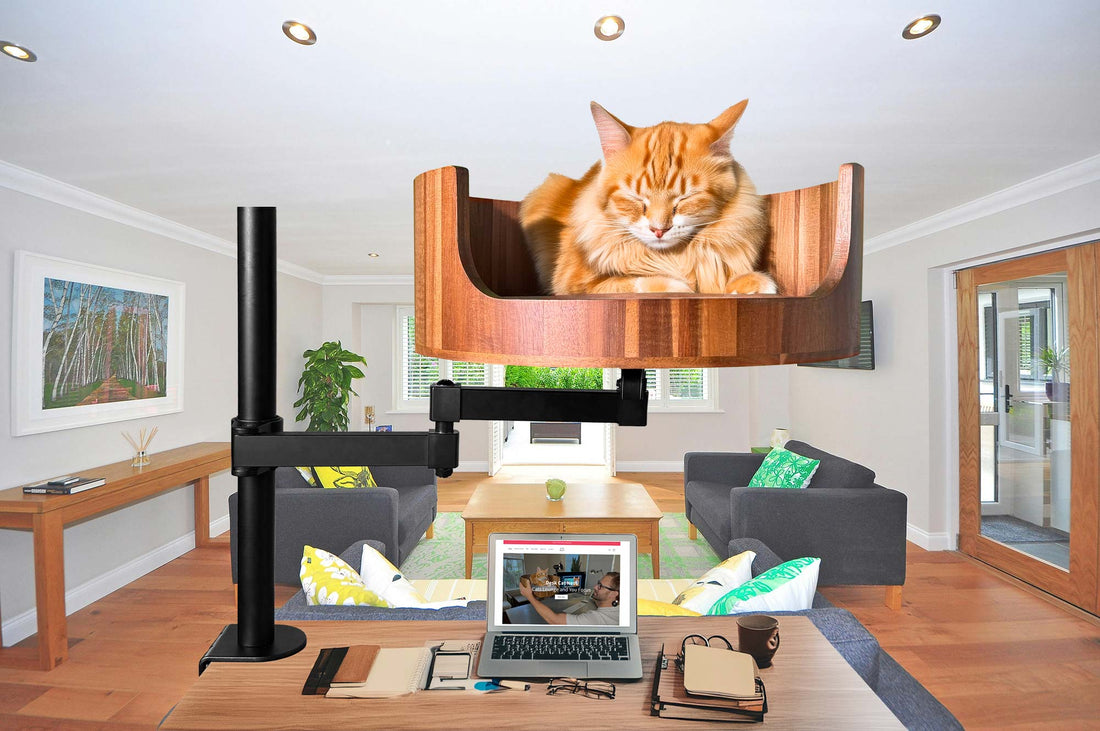
Why Does My Cat Urinate So Much? Understanding the Causes
Share
If you find yourself constantly cleaning up puddles of cat urine around your home, you may be wondering why your feline friend is urinating so much. There could be a variety of reasons behind this behavior, ranging from medical issues to behavioral problems. Understanding the causes of excessive urination in cats is crucial in order to address the issue and ensure your cat's health and well-being.
In this article, we will explore the common reasons why cats may urinate more frequently than usual. We will examine potential medical conditions such as urinary tract infections, diabetes, and kidney disease that can lead to increased urination in cats. Additionally, we will discuss how stress, anxiety, and changes in the cat's environment can also contribute to excessive urination. By gaining a better understanding of what may be causing your cat to urinate so much, you can take the necessary steps to help your furry friend feel more comfortable and alleviate any underlying health concerns.
1. Increased urination in cats can be caused by various factors such as diabetes, kidney disease, urinary tract infections, or stress.
2. Monitoring your cat's litter box habits and consulting with a veterinarian can help determine the underlying cause of excessive urination.
3. Proper diagnosis and treatment are crucial for managing any underlying medical conditions that may be contributing to your cat's increased urination.
4. Changes in diet, increased access to fresh water, and creating a stress-free environment can help alleviate urinary issues in cats.
5. Understanding the reasons behind your cat's frequent urination is key to ensuring their overall health and well-being.
Medical Conditions
Cats may urinate excessively due to underlying medical conditions such as diabetes, kidney disease, urinary tract infection, or hyperthyroidism. These conditions can cause increased thirst and, subsequently, increased urination. It's important to have your cat checked by a veterinarian to rule out or diagnose any potential health issues.
Dietary Factors
The type of food your cat eats can influence their urination habits. Cats that are fed primarily dry food may not be consuming enough water, leading to concentrated urine and more frequent urination. On the other hand, cats on a wet food diet have higher water intake and may urinate more frequently as a result. Keep an eye on your cat's diet and consult with your vet to ensure they are receiving proper nutrition.
Stress and Anxiety
Stress and anxiety can also contribute to excessive urination in cats. Changes in the household, such as a new pet, new family member, or moving to a new home, can trigger stress in cats and lead to inappropriate urination. Providing a comfortable and secure environment for your cat, along with potential behavior modification techniques, can help reduce stress and prevent excessive urination.
Environmental Factors
Environmental factors such as the number of litter boxes, their location, cleanliness, and type of litter used can all impact your cat's urination habits. Cats are very particular about where they eliminate, so ensure that litter boxes are placed in quiet, accessible areas and cleaned regularly. Experiment with different types of litter to see what your cat prefers.
Behavioral Issues
In some cases, excessive urination in cats can be due to behavioral issues such as marking territory or responding to a perceived threat. If your cat is not spayed or neutered, this can also contribute to inappropriate urination. Working with a professional behaviorist and addressing any underlying triggers can help resolve these issues.
FAQs for Desk Cat Nest as a Solution for "Why Does My Cat Urinate So Much"
How can the Desk Cat Nest help with my cat's excessive urination?
The Desk Cat Nest provides a cozy and comfortable space for your cat to rest and relax, which can help reduce stress and anxiety-related urination issues. The elevated design also helps keep your cat's litter box separate, encouraging them to use it more frequently.
Is the Desk Cat Nest safe for cats with urinary issues?
Yes, the Desk Cat Nest is designed with non-toxic materials and provides a secure space for cats with urinary issues. However, it is always recommended to consult with your veterinarian for specific recommendations related to your cat's health.
Can the Desk Cat Nest help with behavioral causes of excessive urination?
Yes, the Desk Cat Nest can help address behavioral causes of excessive urination by providing a designated space for your cat to relax and unwind. The cozy and secure design can help reduce stress and anxiety, which may contribute to excessive urination.
How should I introduce my cat to the Desk Cat Nest?
Introduce your cat to the Desk Cat Nest gradually by placing familiar bedding or toys inside and offering treats to encourage exploration. Allow your cat to approach the nest on their own terms and provide positive reinforcement for using it as a resting spot.
In conclusion, the Desk Cat Bed provides a comfortable and secure space for your cat to rest and relax, ultimately reducing stress and anxiety that may be contributing to excessive urination. With its cozy design and elevated platform, this cat bed promotes a sense of security and privacy, leading to a decrease in unwanted behaviors such as frequent urination. By investing in the Desk Cat Bed, you can help address the underlying issues causing your cat to urinate so much, while also providing them with a cozy and inviting space to call their own.



















































